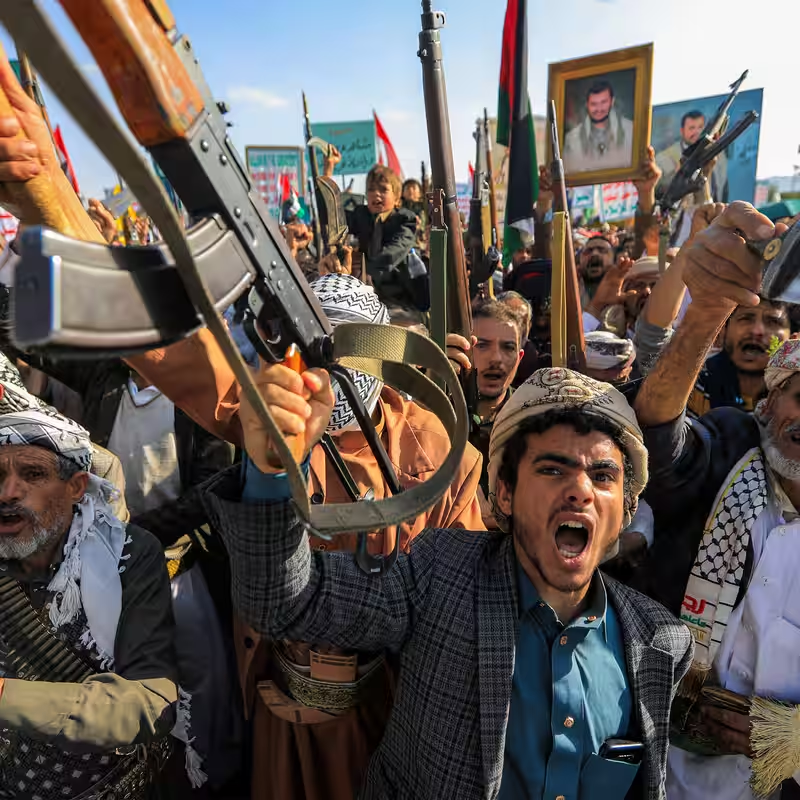Table of Contents
- Houthis Confirm Death of Top General
- Israel Appears to Claim Responsibility
- Who Was Mohammed al-Ghomari?
- Broader Conflict Context
- Regional and Global Implications
- Sources
Houthis Confirm Death of Top General
The Houthi movement in Yemen confirmed on Thursday that its chief of staff, Maj. Gen. Mohammed al-Ghomari, was killed in what it described as an “Israeli-American” airstrike. The announcement, made through an official statement, did not specify the exact date or location of the attack—but it did confirm that al-Ghomari died alongside “some of his companions” and his 13-year-old son, Hussain.
This marks one of the highest-profile assassinations within the Houthi military leadership since the group escalated its campaign against Israel and maritime traffic in the Red Sea following the outbreak of the Gaza war in October 2023.
Israel Appears to Claim Responsibility
While the Houthis blamed a joint “Israeli-American” operation, Israel strongly hinted it carried out the strike. In a statement released Thursday, Prime Minister Benjamin Netanyahu’s office declared: “The resolute hand of the State of Israel will reach everyone who aims to harm us.”
It added: “Another chief-of-staff in the line of terror chiefs who aimed to harm us was eliminated. We will reach all of them.”
Notably, the U.S. has not claimed involvement. American airstrikes against Houthi targets ceased in May 2025 after a months-long campaign aimed at protecting Red Sea shipping lanes. However, Washington continues to provide intelligence and logistical support to Israel, which the Houthis routinely cite as justification for grouping the two nations together in their rhetoric.
Who Was Mohammed al-Ghomari?
Maj. Gen. Mohammed al-Ghomari served as the de facto military commander of Houthi forces, overseeing battlefield strategy, drone operations, and missile launches targeting both regional adversaries and international shipping. Though rarely seen in public, he was considered a key architect of the group’s asymmetric warfare tactics.
His death removes a central figure from the Houthi chain of command at a time when the group faces mounting pressure from both Israeli strikes and internal resource constraints.
Broader Conflict Context
The Houthi campaign began in earnest after Hamas’s October 7, 2023, attack on southern Israel. Framing their actions as solidarity with Palestinians, the Houthis launched dozens of drones and missiles toward Israel and repeatedly attacked commercial vessels in the Red Sea—disrupting global trade and prompting multinational naval deployments.
In response, Israel launched a sustained air campaign against Houthi infrastructure in Yemen, targeting radar installations, weapons depots, and command centers. The U.S. and U.K. joined early on but scaled back operations as diplomatic efforts to secure a Gaza ceasefire gained traction.
Regional and Global Implications
Al-Ghomari’s killing raises several urgent questions:
- Will the Houthis retaliate with escalated attacks on shipping or Israeli territory?
- Could this assassination derail fragile ceasefire talks between Israel and Hamas?
- How will Iran—the Houthis’ primary backer—respond to the loss of a senior proxy commander?
Analysts warn that while Israel may view the strike as a tactical success, it risks inflaming tensions in an already volatile region. “Targeted killings can degrade enemy capabilities,” said Dr. Leila Farah, a Middle East security expert at Georgetown University, “but they often trigger cycles of revenge that are hard to contain.”
For now, the Houthis have vowed to “continue the path of resistance,” but the loss of their top general could mark a turning point in the shadow war over the Red Sea.




